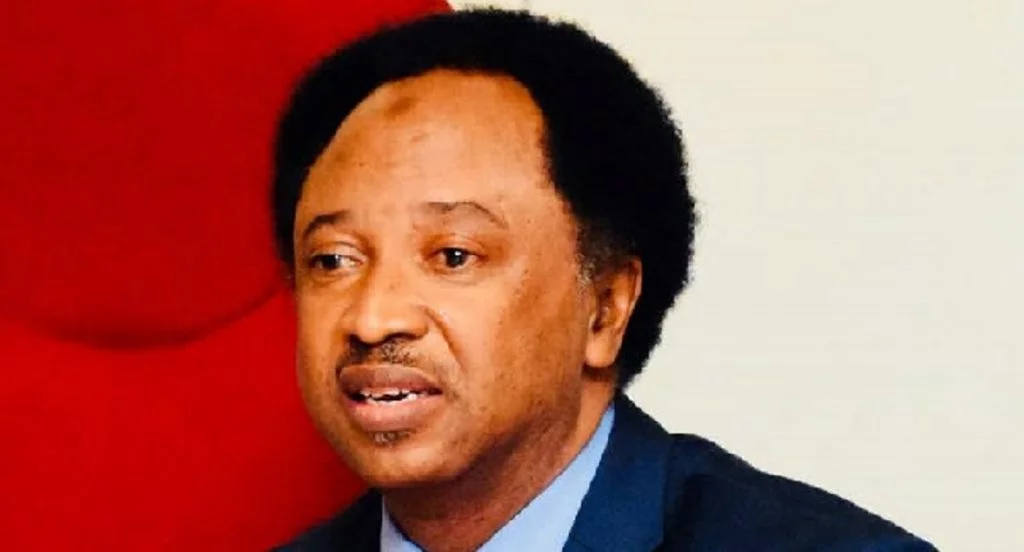News
Ireland Grants Work Permits To Nigerians, Other Foreign Workers

The government of Ireland has concluded plans to woo Nigerians and other foreign workers with work permits with critical skills who require permission to work in the country.
According to the Citizens Information Board, the scheme under the name the Critical Skills Employment Permit applies to countries outside the European Economic Area including the EU, Norway, Iceland and Liechtenstein, the United Kingdom, or Switzerland.
Ireland, with the programme, aims to address a shortage of skilled workers in the country with exists various sectors like production management, ICT, health and social services management, natural and social sciences, engineering, information technology, and telecommunications.
Additionally, roles are available for health workers, teaching professionals, business and administrative professionals, architects, artistic and media professionals, design, sports and fitness, as well as sales and marketing.
The Critical Skills Employment Permit is for skilled workers who are qualified in disciplines that are experiencing a deficit of qualifications and experience required for the proper functioning of the Irish economy.
READ ALSO: Ten Key Moments In Israel’s War With Hamas
These disciplines however require specialistion from candidates to qualify for a Critical Skills Employment Permit.
Who is eligible?
The Irish government those eligible are interested participants offered a job running for two years or more from a company or employer that is registered with revenue, trading in Ireland and registered with the Companies Registration Office.
The applicant must be directly employed and paid by their employer in Ireland. Job offers from recruitment agencies and other intermediaries are not acceptable for this permit.
It also disclosed that job offers must have a minimum of €32,000 in annual salary in an occupation that is on the Critical Skills Occupation List or an annual salary of €64,000 a year in an occupation that is not on the list.
Work permits cannot be obtained for companies where more than 50% of the employees are non-EEA nationals. This requirement may be waived in the case of start-up companies which are supported by Enterprise Ireland or IDA Ireland.
Further details iterate that permits have to be obtained before entering Ireland and applicants may also need to apply for a visa. The scheme requires qualified individuals to register and get an Irish Residence Permit once they arrive in Ireland.
READ ALSO: UK Announces Stricter Visa Measures To Reduce Migration
Applicants who already live in Ireland and have a valid Irish Residence Permit (IRP) with stamp 1, 1G, 2, 2A or 3 permission can apply for the permit if they satisfy the criteria.
However, labour market needs tests are not required for the permit. This means that the employer does not need to advertise the job with the Department of Social Protection, European Employment Service (EURES) or in newspapers.
Who can apply?
The applicant can be the employer, the employee, a connected person or contractor, or an authorised agent. Payments are to be made by electronic fund transfer (EFT) to the Employment Permits Section of the Department of Enterprise, Trade and Employment at Earlsfort Centre, Lower Hatch Street, Dublin 2 D02 PW01, Ireland.
Applications can also be made online with the required documentation, using the Employment Permits Online System (EPOS), with a supplied checklist for assistance.
Applications cost €1,000. If an application is refused or withdrawn, 90% of the fee will be refunded.
The Board assures that rejected applications will be justified and applicants will be granted an appeal within 28 days.
READ ALSO: Dependant Visa Ban: UK Varsities Hit With Low Revenues As Nigerians Turn To Canada
Successful applicants who live outside of Ireland are required to apply for a visa to enter Ireland if their country requires it. They are to present an employment permit to the immigration officer before entry.
They are also to register with their local registration office in the area where they intend to live. Once registered, they will get an Irish Residence Permit (IRP). The fee for registering with immigration and getting an IRP is €300.
If already living in Ireland with another immigration permission, candidates must visit their local registration office for a change of registration permission.
Qualified candidates invited to Ireland for a job interview on the critical skills occupations list can also apply for a highly skilled job interview authorisation. This allows an applicant to remain in Ireland for a maximum of 90 days.
How about bringing family members?
Ireland allows individuals who go through the Critical Skills Employment route to bring their family to live with them in Ireland.
If their family is from a country whose citizens need a visa to enter Ireland: they must all apply for separate visas. If not, they must show proof that they are the family members of the Permit holder to an immigration officer before entry.
READ ALSO: All You Need To Know About UK New Visa Rules
If a skilled worker brings a de-facto partner, they must apply for either a visa if their country requires it or a preclearance if not. This is the person they are in a committed relationship with but not married to.
Children must also apply the same way as the de-facto partner. However, spouses or de-facto partners and any child over 16 must register and get an IRP.
Ireland also offers opportunities for partners of skilled workers to work in the country without a permit through the Stamp 1G IRP. Other family members can apply for a Dependent/Spouse/Partner Employment Permit.
What of citizenship by naturalisation?
The Critical Skills Employment Permit is issued for two years. After this, skilled workers can apply for a Stamp 4 permission to live and work in Ireland without an employment permit.
Stamp 4 permission will be issued for 2 years and can be renewed provided candidates continue to satisfy the criteria. After legally residing in Ireland for 5 years, skilled workers can apply for citizenship by naturalisation.
If not eligible for a Stamp 4, candidates may be issued with a Stamp 1 and will continue to need an employment permit to work in Ireland.
News
Trump’s Airstrikes: Halt Military Cooperation With US Immediately – Sheikh Gumi Tells Tinubu Govt

Islamic cleric, Sheikh Ahmad Gumi has called on the Federal Government to immediately halt all military cooperation with the United States following reported US airstrikes.
Gumi warned that American involvement could worsen Nigeria’s security challenges and undermine national sovereignty.
Gumi made the call in a statement posted on his Facebook page on Friday.
He said while Islam permits the fight against terrorism, such actions should only be carried out by what he described as “clean hands,” arguing that the United States lacks the moral authority to lead such efforts because of its global military record.
READ ALSO:US Dept Of War Shares Video Of Air Strikes In Nigeria
According to the cleric, Nigeria made a mistake by allowing foreign powers to play a role in its counterterrorism operations, insisting that “terrorists do not truly fight terrorists” and that such interventions often result in civilian casualties and hidden political motives.
Gumi warned that allowing Nigeria to become a theatre of war would attract anti-US forces into the country, further destabilising it.
He also cautioned that US involvement, particularly under claims of protecting Christians, could polarise the country along religious lines.
READ ALSO:Trump To Attend FIFA World Cup Finals Draw On Friday
The cleric further argued that airstrikes alone cannot defeat terrorism, stressing that effective counterterrorism requires strong ground operations, which he said Nigeria has enough personnel to carry out if properly organised.
“This is the mistake Nigeria has made. Terrorists don’t fight terrorists in truth; they may only kill innocent people and have ulterior motives behind the drama of fighting ‘terror’.
“As a principle, no nation should allow its land to be a theater of war. And no nation should allow its neighbors to be their enemies.
“If Nigeria wants military assistance, China, Turkey, and Pakistan can do the job effectively,” part of his statement reads.
News
Shehu Sani Reacts To Trump’s Military Strikes In Nigeria

Former lawmaker, senator Shehu Sani, has reacted to reports of United States military strikes on terrorist targets in Nigeria’s North-West, saying foreign powers cannot permanently handle the country’s security challenges.
Sani made the remarks on Friday via his X handle while responding to a post by the United States Africa Command, AFRICOM, which indicated that the strikes were carried out in coordination with Nigerian authorities.
According to him, if the reported strikes were indeed a joint operation with Nigerian security agencies, then such action was justifiable, given the threat posed by terrorist groups in the region.
READ ALSO:US Dept Of War Shares Video Of Air Strikes In Nigeria
He described terrorists operating in parts of northern Nigeria as “cancerous cells,” stressing that they survive through violence and should be confronted decisively.
Sani also dismissed narratives suggesting that terrorist attacks target only one religious group, describing such claims as false and misleading.
He said: “If actually, the military strikes against the terrorists targets in the North Western part of Nigeria were a joint operation with the ‘Nigerian Authorities’ as posted by the US AFRICOM on their verified X handle, then it’s a conscionable action.
READ ALSO:JUST IN: US Forces Bomb Terrorists Camps In Nigeria
“Terrorists have become cancerous cells in our part of the country.They live by the sword.The narrative that the evil terrorists only targets one faith, remains absolutely false and misleading.
“Again, the ultimate security and peace in our country lies with ourselves and not with the US or any foreign power. They can complimentarily or unilaterally strike, but they can’t eternally fight our battles.”
News
UKWU! Timaya Falls On Stage While Trying To Lift Plus-sized Woman During Performance [VIDEO]

Nigerian singer, Timaya fell on stage while trying to lift a plus-sized lady during performance.
The incident occurred during his ‘Ukwu’ performance at the Gbaramatu Christmas Carnival in Delta State.
READ ALSO:Saboteurs Against Presidential Amnesty Reforms – General Ndiomu
Timaya in a now trending video on social media collapsed after the plus-sized woman jumped on him midday into his performance.
The singer later got up and continued his performance amid cheers from the crowd.
Watch video here
https://x.com/hypetribeng/status/2004263337572684157?s=20

 News3 days ago
News3 days agoPHOTOS: New Era In Furupagha-Ebijaw As Okpururu 1 Receives Staff Of Office

 News3 days ago
News3 days agoUBTH CMD Marks 120 Days In Office, Expresses Commitment To Providing Conducive Working Environment

 News3 days ago
News3 days agoOPINION: Gumi And His Terrorists

 News3 days ago
News3 days agoFG Declares Public Holidays For Christmas, New Year Celebrations

 News3 days ago
News3 days agoFIRS Confirms NIN As Tax ID

 Metro3 days ago
Metro3 days agoFintiri Pardons Man Sentenced To Death For ‘Killing Herdsman In Self-defence’, Others

 News3 days ago
News3 days agoOPINION: Christmas And A Motherless Child

 News3 days ago
News3 days agoOPINION: My Man Of The Season

 News2 days ago
News2 days agoJUST IN: Kano Lawmaker, Sarki Aliyu Daneji, Dies Hours After Colleague’s Passing

 News3 days ago
News3 days agoKWAM 1 Withdraws From Awujale Race, Ends Court Challenge


















